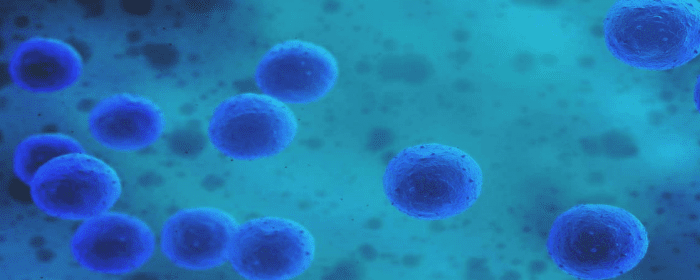
by admin | Jul 30, 2020 | ALS, Stem Cell Therapy
Amyotrophic lateral sclerosis is a cruel disease. It causes the nerves that control muscles to die. When these upper and lower motoneurons degenerate, it causes weakness, muscle atrophy, muscle cramps, and twitching. Patients with progressed ALS lose the ability to walk and to move, and ultimately lose the ability to swallow and to breathe.
Unfortunately, there is no cure for this disease. Two drugs, riluzole, and edavarone, can help slow the progression of amyotrophic lateral sclerosis; however, these treatments cannot stop the disease.
Stem cells are an intriguing potential option for those wanting to manage symptoms from neurodegenerative diseases like ALS. The hypothesis is simple. Scientists are aggressively pursuing stem cell research to treat amyotrophic lateral sclerosis to study the use of stem cells to potentially restore diseased nerve cells in ALS which may help to restore muscle function. Drs. Gugliandolo, Bramanti, and Mazzon recently reviewed the potential use of mesenchymal stem cells for the treatment of ALS.
Mesenchymal stem cells can be gathered from many different sites in the body including bone marrow, umbilical cord, or adipose (fat) cells. The stem cells can then become several different cells in the body, including nerve cells (i.e. neurons). Mesenchymal stem cells also produce and release (e.g. through exosomes) an astounding number of molecules that help other cells grow and develop. Thus, mesenchymal stem cells can not only become new nerve cells, they can support other nerve cells’ growth and development.
The authors describe in detail the potential for mesenchymal stem cells to help treat ALS. The review shows the many successful uses of stem cells in animals (mice) that have experimental ALS. In short, stem cells slowed the loss of motor function (muscle activity), delayed the progression of ALS, and increased length of survival.
Clinical trials of mesenchymal stem cells to treat ALS are in Phase I and Phase II, however initial results are encouraging. First of all, treatment with these stem cells is safe in patients with ALS—no serious adverse events have been reported in any of the trials reviewed in the journal article. In at least 9 clinical trials, mesenchymal stem cells slowed disease progression in patients with ALS to some degree.
Patients with ALS and those who care for them should note that while these trials have shown that mesenchymal stem cells are safe and at least partially effective in the treatment of ALS, Phase I and Phase II clinical trials only have a relatively small number of patients compared to Phase III trials. Nonetheless, the clinical trial results thus far look promising, certainly promising enough for certain types of stem cells to advance to Phase III pivotal clinical trials.
Reference: Gugliandolo, A., et al. Mesenchymal Stem Cells: A Potential Therapeutic Approach for Amyotrophic Lateral Sclerosis? Stem Cells International. Vol. 2019, Article ID 3675627, 16 pages, 2019. https://doi.org/10.1155/2019/3675627

by admin | Jun 26, 2020 | Traumatic Brain Injury, Exosomes, Stem Cell Therapy
Traumatic brain injury is a single name given to a broad variety of conditions. In every instance of traumatic brain injury, some external force causes damage to the brain. This may be mild and short-lived, such as a concussion, or severe and permanent, such as severe head trauma. The initial trauma or injury can cause a number of injuries to the skull and brain such as skull fracture, cerebral contusion (“brain bruise”), cerebral edema (“brain swelling”), or hemorrhage (“brain bleed”).
Traumatic brain injury can also cause several secondary injuries that may continue for hours or days. The secondary effects of traumatic brain injury include:
- Electrolyte imbalances
- Mitochondrial dysfunction
- Inflammation
- Ischemia (lack of blood flow to parts of the brain)
- Brain cell destruction
These secondary traumatic brain injuries can cause long-term and even permanent neurological dysfunction.
Unfortunately, there are very few treatments for traumatic brain injury. Neurosurgeons can sometimes stop brain bleeding, stabilize skull fractures, and reduce brain swelling; however, there is little that can be done to stop the secondary effects of traumatic brain injury. Doctors have tried using steroids or hypothermia (cooling the patient) to decrease inflammation and stop further injury, but these interventions are not highly effective.
Ideally, one would give a treatment soon after a person has had a traumatic brain injury. This treatment would reduce or block the secondary effects of traumatic brain injury. Scientists are studying whether stem cell treatment can do that very thing.
Researchers recently showed that exosomes from bone marrow mesenchymal stem cells were able to reduce the secondary effects of traumatic brain injury. They humanely caused a traumatic brain injury in a group of mice. Fifteen minutes after the TBI, half the mice were given an injection of stem cells and the other half received a placebo (i.e. saltwater).
The mice that received the stem cell exosome treatment did substantially better than the mice who received a placebo. Stem cell exosome treatment substantially reduced the size of the damage to the brain compared to control. Moreover, mice that received stem cell exosome treatment did better on sensory, motor, reflex, and balance tests. In other words, stem cell exosome treatment helped mice with traumatic brain injury move better than those that did not receive stem cell exosome treatment.
The scientists went on to show that exosome treatment helped block the secondary effects of traumatic brain injury on the cellular and molecular level. In short, stem cell exosome treatment reduced inflammation in the brain from TBI.
Taken together, these results strongly suggest that treatment with exosomes from bone marrow mesenchymal stem cells soon after traumatic brain injury has the ability to protect the brain from damage. Of course, this treatment will need to be tested in humans who have had incidental TBI. Nevertheless, the basic science results are quite exciting since few neuroprotective agents, if any, can block the secondary effects of traumatic brain injury the way exosomes did in this scientific report.
Reference: Haoqi, N., et al. (2019). Exosomes Derived From Bone Mesenchymal Stem Cells Ameliorate Early Inflammatory Responses Following Traumatic Brain Injury. Frontiers in Neuroscience. 2019 Jan 24; 13:14.

by admin | Jun 25, 2020 | Neurodegenerative Diseases, Mesenchymal Stem Cells, Stem Cell Research
As the name suggests, neurodegenerative diseases are a disease of the nervous system in which nerve cells (i.e. neurons) become dysfunctional and die. As more nerve cells die, certain brain functions slow, change or stop. Alzheimer’s disease, Parkinson’s disease, Huntington’s disease and Amyotrophic lateral sclerosis (ALS) are examples of debilitating and even fatal neurodegenerative diseases. There are no cures for these diseases, but symptom management is the primary focus for patients seeking treatment options.
Neurodegenerative diseases are an attractive target for regenerative medicine. The approach makes sense intuitively; if brain cells are inflamed, dysfunctional, and dying, can mesenchymal stem cells be applied as a targeted approach so that they may differentiate into new brain cells and release all the helpful substances stem cells are known to release. Many researchers share this optimism and believe in the promise of stem cells as a treatment for neurodegenerative diseases. Indeed, Drs. Joyce and coauthors discuss what steps have already been taken to develop stem cells into a potential treatment for neurodegenerative diseases.
The authors describe scientific studies that show how mesenchymal stem cells “promote endogenous neuronal growth, decrease apoptosis and regulate inflammation.” In other words, stem cell transplantation supports nerve cell growth, decreases cell death, and reduces the damaging inflammation that is seen in some neurodegenerative diseases like multiple sclerosis.
According to the scientists, stem cells “can mediate modification of the damaged tissue microenvironment to enhance endogenous neural regeneration and protection.” This means that stem cells can make the area around the diseased brain more favorable to nerve cell growth and development. Stem cells create a protective environment for nerve cells to live and operate.
Clinical trials that study the effects of stem cells in neurodegenerative diseases are progressing. Some studies show that stem cells might be able to slow the rate at which muscle strength declines and are considered safe for those with ALS. Likewise, patients with Huntington’s disease showed motor and cognitive improvements two years after receiving a stem cell transplant into the damaged region of their brains. Moreover, stem cells transplanted into patients with Parkinson’s disease were found to be alive and well 10 years after transplantation. Perhaps more importantly for patients, stem cells provided relief of Parkinson’s disease symptoms.
As of now, stem cell treatments for neurodegenerative diseases can be directed to the targeted tissues with administration techniques such as intranasal or intrathecal injections to bypass the blood-brain barrier. While these injections have been shown time and again to be safe, patients and their providers must consider the process and their safety. Continued research is ongoing and those seeking an alternative option should do their research and discover how regenerative medicine may potentially help them manage their symptoms.
Reference: Joyce, N., et al. (2010). Mesenchymal stem cells for the treatment of neurodegenerative disease. Regenerative Medicine. 2010. Nov; 5(6): 933-946.

by admin | May 5, 2020 | Osteoarthritis, Stem Cell Research
Osteoarthritis of the hip is a painful condition that can interfere with leg movement and diminish the quality of life. In some, the symptoms are mild, but in others, osteoarthritis can be severe and can even lead to joint failure. Pain is often intermittent in early stages, but in later stages, the pain can be constant with periods of sharp, intense pain. The hip joint becomes stiff and unstable, making it difficult to move around and greatly increasing the risk of falls.
Unfortunately, there are few effective treatments for osteoarthritis of the hip. Management includes pain control with non-steroidal anti-inflammatory drugs and physical therapy. Steroid injections into the hip are not as effective as they are for knee osteoarthritis, so many doctors hesitate to perform them. Joint supplements such as glucosamine and chondroitin are unlikely to be very effective—clinical trials have not provided evidence that they actually work. The definitive treatment for hip osteoarthritis is hip replacement surgery, which is expensive and associated with a long period of recovery.
The main problem in osteoarthritis is that the joint breaks down over time from wear and tear (i.e. microtraumas). At the same time, the joint has a very limited capacity to heal itself. In other words, once the joint breaks down, it pretty much stays that way. Since life is a series of joint microtraumas, the hip gets progressively worse. Indeed, one in four people will have painful osteoarthritis of the hip by age 85, and hundreds of thousands will have it earlier in life.
Scientists have long wanted to find ways to help the body regenerate the joint substances, particularly joint cartilage. Unfortunately, the joint does not receive good blood supply and no known drug or supplement can actually rebuild joint cartilage. That is the main reason researchers are aggressively testing stem cells as a treatment for hip osteoarthritis.
Mesenchymal stem cells have the potential to become many different types of cells, including chondrocytes (cartilage cells). Mesenchymal stem cells sense the environment they are in and then become the cell consistent with that environment. So, the theory goes, injecting mesenchymal stem cells into the hip joint can prompt them to become hip joint cells (chondrocytes).
Researchers tested this hypothesis in a clinical study. They injected mesenchymal stem cells taken from fat tissue (i.e. adipose) and injected them into the hip joints of people with difficult-to-treat hip osteoarthritis. They compared the patients’ Harris Hip scores (HHS) before and 6 months after treatment. HHS is a reliable way to assess the severity of osteoarthritis symptoms. An HHS score of less than 70 is “poor” and a score of 80 to 90 is “good.” Before stem cell treatment, patients had an average HHS score of 67.2±3.4 and 84.6±6.3 afterward. Scores also improved in other tests including WOMAC and Visual Analogue Scale. In other words, mesenchymal stem cell treatment reduced pain and improved joint function in these patients compared to levels prior to treatment.
The authors of the clinical study state that “preliminary results are positive and promising.” Further research and studies will help to learn more about this regenerative medicine potential.
Reference: Dall’Oca, C. et al. (2019). Mesenchymal Stem Cells injection in hip osteoarthritis: preliminary results. ACTA Biomedica. 2019, 90(Suppl 1): 75-80.

by admin | Mar 26, 2020 | Autoimmune, Mesenchymal Stem Cells
The human immune system can be one of our biggest assets or
one of our greatest foes. The immune system protects us against foreign
invaders like viruses and bacteria. It is essential for helping us maintain
immunity over a lifetime, whether from immunizations or previous infections. We
could not live without our immune systems.
On the other hand, the human immune system is the cause of
numerous diseases. Autoimmune
diseases like multiple sclerosis, ulcerative colitis, systemic lupus
erythematosus, and Crohn’s disease are caused by an immune system that
mistakenly attacks our own tissue. Organ and bone marrow transplants fail
because the body’s immune system rejects the transplant. When the immune system
is functioning normally, it is life-sustaining; however, when the immune system
falters, it can cause serious disease, suffering, and even death.
Compared to other diseases, the treatments for autoimmune
diseases and other diseases that involve the immune system are limited. Doctors
can prescribe steroids to knock down the immune response. These powerful drugs
can control disease flareups, but they aren’t a cure. Moreover, steroids cause
terrible side effects when taken long-term.
While there have been some recent developments in the treatment of certain autoimmune diseases (e.g. disease-modifying drugs for inflammatory bowel disease), medications are still limited. That is why scientists are actively studying the immune-modulating power of mesenchymal stem cells.
Mesenchymal stem cells exert a number of beneficial effects on the cells of the immune system. Mesenchymal stem cells can suppress T-cells, B-cells, dendritic cells, and natural killer cells (cells that participate in autoimmune diseases). Likewise, mesenchymal stem cells induce and affect the action of regulatory T-cells. This can help fine-tune the immune system, potentially shifting the balance from harmful to helpful immune system function.
Mesenchymal stem cells have been shown to be effective in various Phase I and Phase II clinical trials to treat multiple sclerosis, Crohn’s disease, lupus, ulcerative colitis, and even diabetes. While the clinical trials are often small—15-40 patients—the effects are impressive. Furthermore, treatment with mesenchymal stem cells is consistently safe; in study after study, the risk of serious adverse events is vanishingly small.
As with most fields of medicine, these clinical trials will need to be replicated in larger, Phase III trials. That being said, some large trials have already been conducted with favorable results. Perhaps the best example of a large trial testing the effect of mesenchymal stem cells on immune system function is in the field of transplantation medicine. The prestigious Journal of the American Medical Association (JAMA) published a clinical trial of 159 patients undergoing kidney transplants. Stem cell treatment reduced the incidence of kidney rejection, decreased the risk of opportunistic infection, and was associated with better kidney function 1 year after treatment.
The results from dozens of clinical trials suggest mesenchymal
stem cells are powerful modulators of immune cell function and have the
potential to one day be tools to treat diseases caused by the immune system. We
anxiously await further results from large, Phase III trials.
Reference: Gao, F., et al. (2016). Mesenchymal stem cells and immunomodulation: current status and future prospects. Cell Death & Disease. 2016, Jan; 7(1): e2062.






 St. Petersburg, Florida
St. Petersburg, Florida
